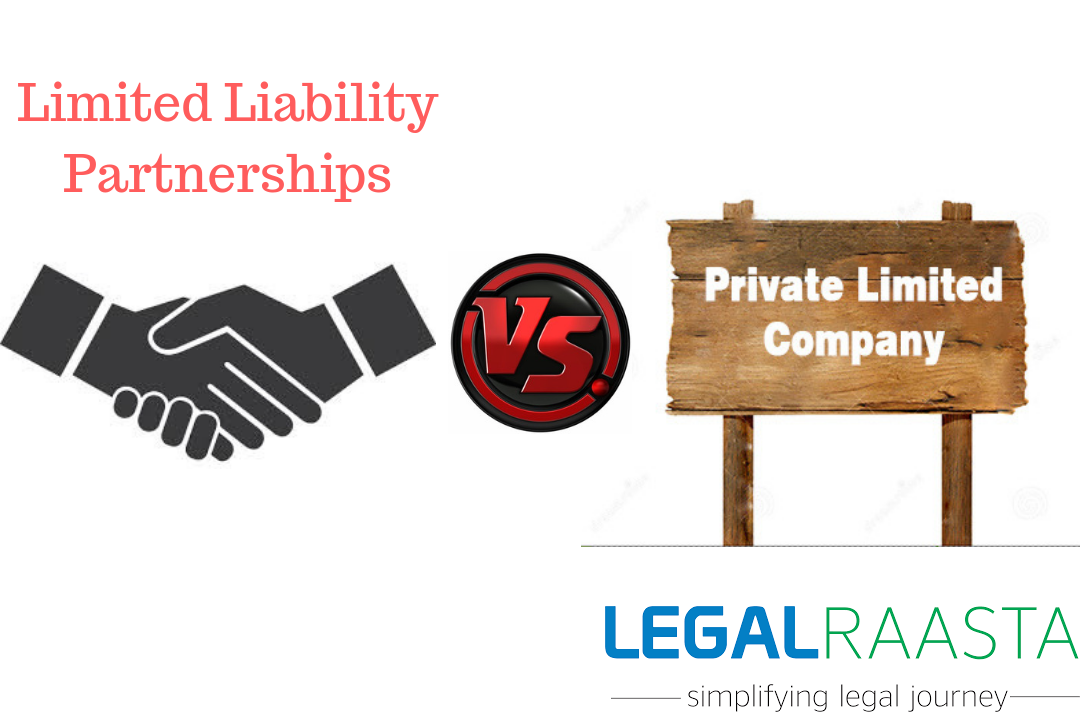What is the Significance of LLP Registration?
It is a partnership with limited responsibility under the Limited Responsibility Partnership Act of 2008. Companies can expand while taking on less responsibility thanks to the LLP registration process, and they are recognized as distinct legal entities with their own existence and personalities, independent of their partners. The ease with which a limited liability partnership (LLP) can be formed online makes it popular among small business owners. In this blog post, we’ll discuss the advantages and disadvantages of LLP Registration in India, as well as what it is, what its characteristics are, and how LegalRaasta can help you with the LLP registration expenses and online LLP Registration.
What is LLP ?
Limited liability partnerships are formed through mutual agreement, which is a written contract between the LLP’s designated partners or the LLP alone and the LLP’s designated partners. The LLP agreement specifies the rights, powers, responsibilities, and liabilities of the designated partners.
Important Facts About Limited Liability Partnership
- A private limited company and a partnership, or a simple partnership firm, are combined to form an LLP Registration in India.
- As part of the LLP registration process, you have partners who contribute equally to profits and losses.
- Additionally, the profit or loss might be divided according to the partnership’s or LLP’s ratio, provided that all of the reasons for the partnership have been agreed upon.
- Each LLP Registration is handled as if it were an independent asset, liable for its own debts, suing or being sued in its own right.
Some of the LLP’s advantages
- A limited liability partnership (LLP) is a well-organized business entity based on an LLP agreement that is also flexible and legal-free. A limited liability partnership (LLP) is a business structure or model that allows for limited liability. It is organized and managed in accordance with the terms of a contract.
- The limited liability partnership (LLP) is a flexible and cost-effective business structure that is easy to establish.
- Because there is no minimum capital contribution requirement, the cost of forming an LLP is less than that of forming a corporation. With a small initial investment, an LLP can be formed.
- It takes less time to set up and is simple and inexpensive. Starting a business is straightforward for entrepreneurs. LLP agreements are also custom-made to meet the needs of the directors or partners.
- It also enables professional expertise to combine financial risk in a novel and efficient manner.
- In comparison to a partnership, an LLP has a separate legal existence known as the body corporate. An LLP protects the members’ personal assets from liabilities. In other words, an LLP is a legal entity distinct from its members.
- Since the LLP Registration process is adaptable, the Designated Partners of the LLP are free to manage their LLP whatsoever they see fit.
- In contrast to a partnership, an LLP has its own legal entity called the body corporate. A limited liability partnership (LLP) protects the members’ personal assets from liabilities. To put it another way, an LLP is a separate legal entity from its members.
- Because operations and profit distribution are determined by a written agreement, LLPs offer a great deal of flexibility. It results in better business management. Limited Liability Partnerships (LLPs) allow for more flexibility without imposing stringent legal and procedural requirements. Because the Limited Liability Partnership (LLP) is a new business model in India, it provides some flexibility.
- Transferring ownership in an LLP is easier; under the terms of the LLP agreement, any partner can do so. It is assumed that a limited liability partnership (LLP) is a legal entity. As a result, it has the authority to rent, lease, purchase, own, and even be held liable for property. An LLP allows for easy ownership transfer and has no restrictions on who can join and leave.
- In an LLP, tax issues are handled at a lower rate than in a corporation. When compared to other business types, an LLP pays a lower tax rate and is exempt from taxes such as dividend distribution tax and minimum alternative tax.
- There are fewer legal requirements, regulations, and compliance requirements for LLP partners because they are not managers or representatives of their fellow partners.
Some of the LLP’s Disadvantages
- People do not regard LLPs as credible businesses in the same way that they do not regard other business forms as credible. Despite the LLP’s many benefits, many people prefer other business structures.
- Due to state-by-state differences in tax benefits and some LLP formation restrictions, forming an LLP can be costly.
- Income reports must be filed and made public with Companies House. Members’ non-public income may be disclosed in the accounts.
- Income is taxed as such because it is considered personal income. There may be tax advantages to forming a corporation, but this will depend on your unique situation.
- Profits cannot be retained in the same way that profits in a company limited by shares can be retained. This means that all profits are effectively distributed, and there is no way to carry profits forward to a future tax year.
- An LLP must have at least two members to be registered, and if one of the partners decides to leave, the LLP may need to be disbanded.
- Residential addresses were once kept track of by Companies House. Consider whether or not solicitors and law firm partners would want their home address made public if their work involves sensitive cases.
Conclusion
The concept of an LLP is that one partner is not responsible or liable for the negligence or misconduct of the other. It also provides limited liability protection for the owners against the LLP’s debts, as well as the ability for the LLP’s partners to manage the company directly. In conclusion, as demonstrated in the preceding essay, the LLP registration Process has evolved into a need for early-stage businesses hoping to profit from financial incentives and registration advantages. The team of proficient and educated specialists at LegalRaasta is always available to assist and guide you with the LLP Registration Process.The LegalRaasta is a leading business startup consultant that offers services like Proprietorship Firm Registration, Partnership Firm Registration, LLP Registration, Company Registration, GST Registration, and Trademark Registration.









